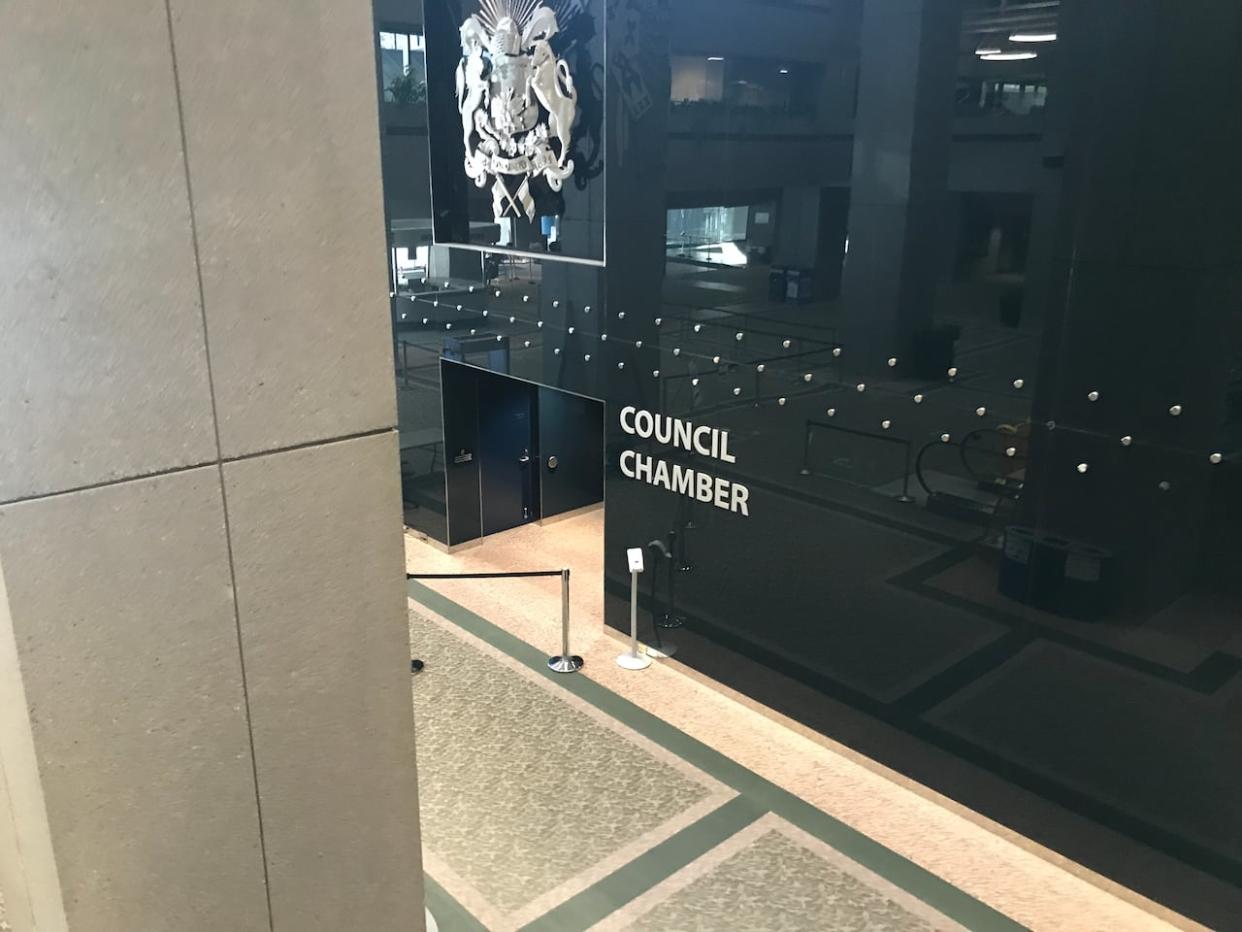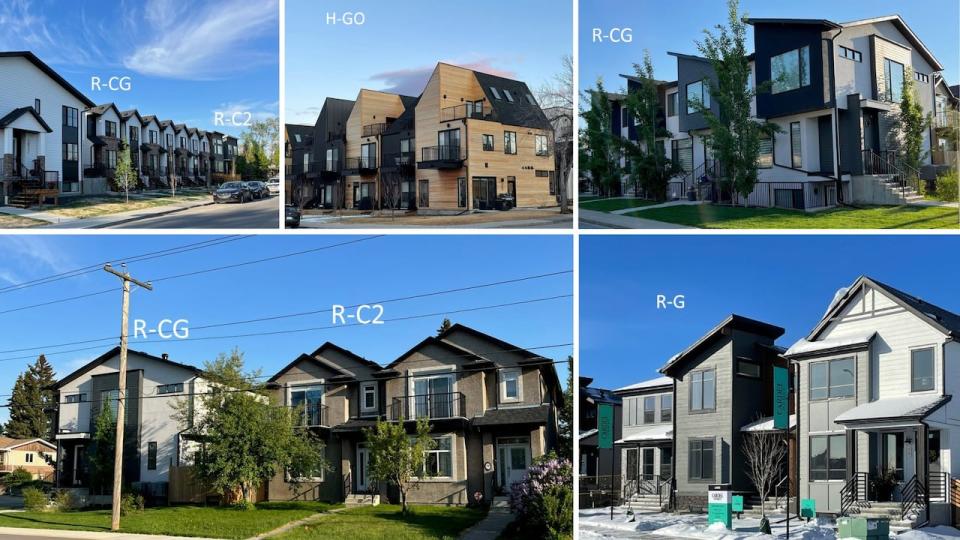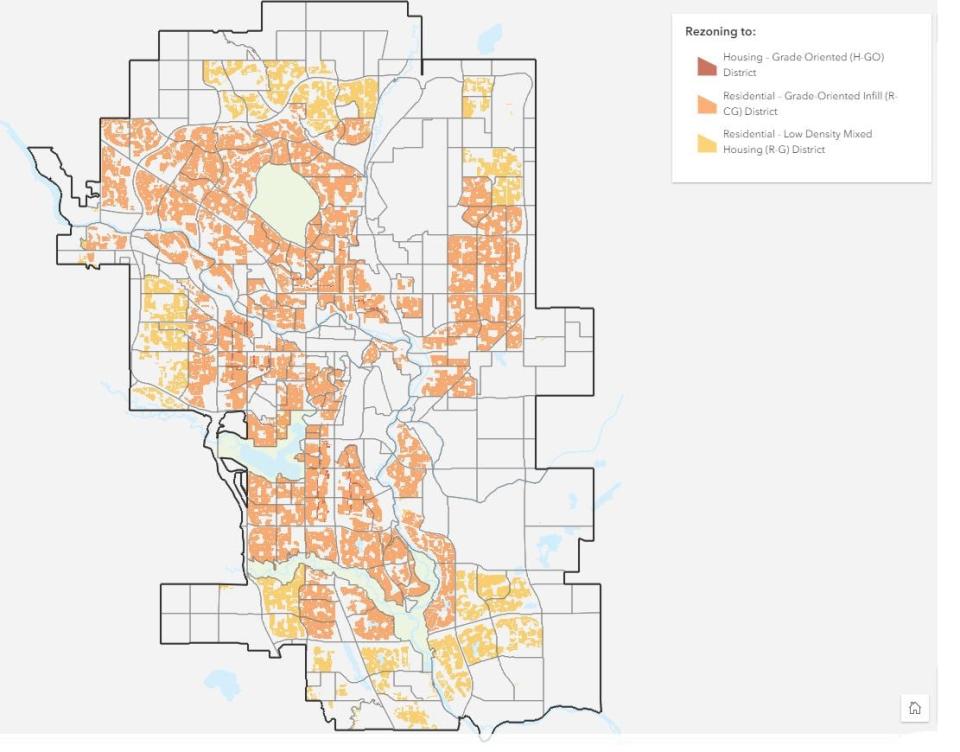Calgary city council's largest and longest public hearing ever enters 2nd week

Calgary city council has entered Week 2 of its largest and longest public hearing ever, as scrutiny of the city's proposed blanket rezoning strategy continued on Monday.
To begin the new week, 910 people have registered to speak to council. Of those registered, over 400 people have already spoken. As of Monday morning, 300 remained. All were invited to share their thoughts about the pitch to rezone residential areas to allow for different housing types.
One of their proposed strategies would amend the land-use bylaw in neighbourhoods that currently allow only single-family homes. It would mean that areas now zoned for only single or semi-detached homes would be rezoned to R-CG, R-G or H-GO, which would allow for townhomes and row houses.
As it stands now, rezoning can occur when a property owner applies for a change to build something other than what their local zoning allows. City council then makes the final decision on whether to approve or refuse a rezoning application after a public hearing.
The proposed rezoning strategy does not include apartment buildings, and new single and semi-detached homes would still be allowed to be built.

Different zoning examples in various communities around Calgary, according to images from the city's website. (City of Calgary)
Proponents of the bylaw change say citywide rezoning will not change communities overnight. They say it's a necessary step toward creating more housing opportunities.
Opponents express a range of worries. They say it could damage property values, strain infrastructure and parking, reduce greenery and alter the character of their neighbourhoods.
But Coun. Evan Spencer told the Calgary Eyeopener on Monday that council is also hearing about concerns unrelated to housing.
"This is a decision that has picked up a whole lot more than housing along the way," said Spencer, who represents Ward 12.
"We're talking about all the pressures of growth over the last 15 years. We're talking about decisions that this council has made and a growing mistrust with governance and institutions … which does make the pure decision on the merits of the policy difficult."
LISTEN | Councillors Wyness and Spencer discuss public hearing so far:
Coun. Jennifer Wyness of Ward 2 says she plans to propose amendments following the public hearing.
"Right now, there is nothing stopping anyone from buying a single-family house and coming through city council and getting rezoned," she told CBC Radio host Loren McGinnis before Day 7 of the hearing. She noted that rezoning proposals are already more likely to be approved than rejected.
According to the city, 95 per cent of the rezoning applications that come to council are approved.
Over 200 panels expected
Council is typically hearing from presenters in panels of five, and each speaker has five minutes to make their case.
Monday's hearing kicked off with panel No. 116 of what is expected to be 202 panels. After taking a break on Sunday, Monday was expected to be another 12-hour day for council, with the hearing running from 9:30 a.m. to 9:30 p.m.
Wyness told reporters on Monday that members of council are focused on listening to residents, but there is also a fatigue factor.
"We're just showing up here, getting as much work done, listening to people, going home, getting up and doing it all over again," she said during the public hearing's lunch recess. "Trying to see our families somewhere in the mix, too."

The city has proposed that areas currently zoned for only single or semi-detached homes will be rezoned to R-CG, R-G or H-GO, which would allow for townhomes and row houses. (City of Calgary)
The city says it's "committed to ensuring that every registered speaker has an opportunity to be heard, while also continuing to manage other business" because of the "unprecedented scale" of the public hearing.
So far, there have been 179 registered speakers who did not speak during their turn. Further, there were 5,950 written submissions as of Friday.
Once the public hearing is complete, city council will debate the proposal and decide whether to approve, reject or make amendments.
Because new speakers are allowed to register for the hearing at any point for as long as the hearing is open, the city's schedule is subject to change.
Still unknown is when the hearing will come to an end.


